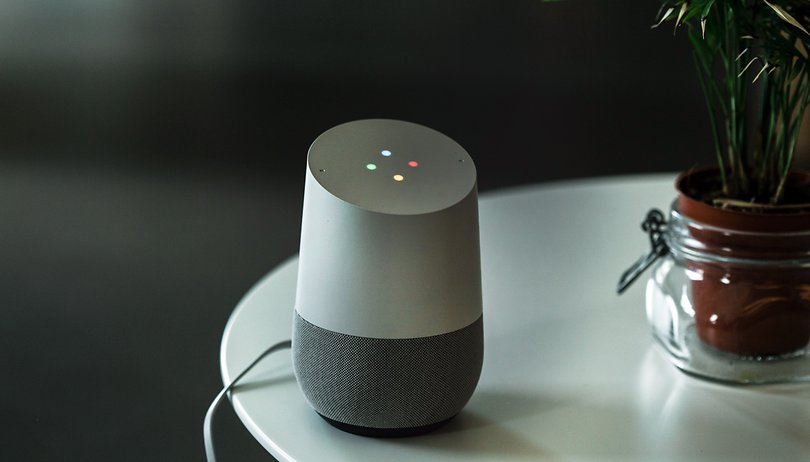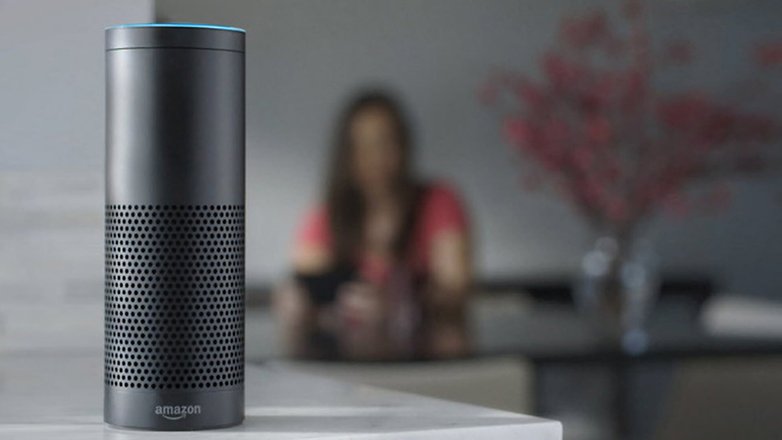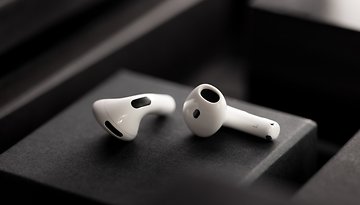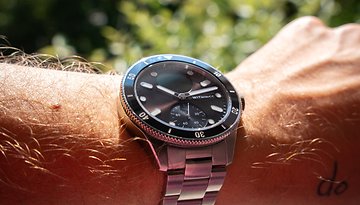Would you trust a smart assistant in your home?


Trends in consumer tech point increasingly towards a future where our homes are inhabited by an ecosystem of interconnected 'internet of things' devices, ostensibly controlled via a smart assistant which we can address via voice—Google Assistant, Alexa, Bixby, etc. But not everyone is thrilled with the idea of inviting a listening AI into their house.
There are many reasons you might want a smart home system. Aside from the sheer joy of feeling like a futuristic wizard controlling appliances with the sound of your voice, they can do wonders when it comes to saving time and energy in your day to day life. We've been experimenting with various smart home systems including Amazon Echo and Google Home, and even the initially skeptical editors have found themselves warming to the system. Nonetheless, a few naysayers remain, and that's largely because of privacy concerns.
We all know that the companies offering us all these shiny goodies want more than just our cash—they want our sweet, sweet data. And they can be incredibly subtle about it, as the OnePlus spying controversy proved. The AI-enabled smart assistants can be fantastically effective at responding to your needs, but in order to do that, they have to get to know you. Intimately. And, well, all that personal information has to go somewhere.

AI companies are investigating privacy issues as well as other ethical concerns, but in the meantime continue to push out products. All the while the general public still needs to learn a lot about artificial intelligence. The potential for corporations to gather data on us through smart home tech still puts off those of us who don't feel there are adequate protection. Sure, you can secure your home against hackers, but the manufacturer is a different story. Additional devices, like Google's Clip camera that autonomously takes pictures of your life, is a level of surreptitious surveillance we're not quite comfortable with.
Even when smart home tech isn't meant to compromise our security, it can still go wrong, as one unlucky user found when he discovered his Home Mini had been listening to everything he said 24/7. Even those of us who are enthusiastic about smart home tech are worried about how this early tech can go wrong. Even if the results can be quite amusing.
So far most of the editorial office like smart home, but there are still a few doubters, who have good reasons to be skeptical. Let us know what you think!
Source: Android Police

















Since all Android phones have a smart assistant built in I guess I must answer you headline with the word Yes.
machine language now the most predominant language on earth..
all those smartfridges toasters and vacuum cleaners are having a party..
ai is here to stay, not that anyone had/has a choice or say in the matter...
and privacy has become non existent, regardless of political, economic or geographic boundaries data floats around freely..
mostly I'm ok with it, it's what people do with that data that matters.
I've got more processing power in my pocket than NASA had landing man on the moon..
as for my house it's just as smart as I need, without a constant connection to the cloud.
You're absolutely right Paul. What matters most IS what people who mine the data do with it. It's sad to think that we almost have to use 256 bit encryption on everything we do. And even then that may not be enough.
To many people are giving up to much privacy to easily. I have a couple of IP cameras Outside my house none inside. I will never have a TV with a camera or if I do it will be painted and any microphone disabled. I will not ever have a smart house. I want my house as dumb as possible.
There's truth in what you say. Far too many people don't care about sharing their data and personal information. But sometimes we have a tendency to ignore the risks because it's felt the benefits are far greater than the risk.
I am certainly interested in the concept, though the current options and set up is no where near as good as it should be.
We need a truly universal solution, where each home system has a minimum universal features, where any device can fully communicate with the home system. There also has to be some regulation on the quality of the AI, again there should be at least a minimum level of knowledge and cognitive ability.
Unfortunately a huge majority of the population is not really concerned about privacy or data collection and data protection. For a large number of people sharing or making available their own data is advantageous.
Hundreds of thousands of people had data stolen from yahoo, yet they still have hundreds of thousands of people using the services.
If we really want to change the consensus, then we really need to stand up and make it a important issue - alas there tends to be less and less people who have the guts to stand up and shout for changes. Our politicians know this.
So we're going to have to live with the Internet and AI that is presented to us...
Peace ?
Each day the internet and AI gets us closer to an autonomous society. They're pushing self driving cars for example. And the smart home hasn't proven that is not vulnerable. But many either don't care or don't want to know how much of their info is assessable.
Yea Samsung "smart things" for example will have interior security features (sensors/camera), their robotic vacuum cleaner has a visual/radar feature used to map your rooms in order to plan a efficient route - all very useful - but should it be running on a insecure network then a robber can easily figure out who home at what times. Disable the house security and steal as much as needed.
That's just one example of what could be a book of examples of the possible dangers.
Peace ?
Actually, I don't have one. But yes I will surely want to have a smart assistant in my place. :)
Not in my house. No TV with a camera either.
You seem to be someone that is wary of prying eyes, and for good reason in my opinion. Do you think most people have the same worries? It would be interesting to find out how much current end users really know about the potential security risks of today's at-home appliances.
Part of what feeds this is along the lines of the OnePlus issue of collecting user data without the user being aware that their data is being mined. And of course we've all heard about the aspect that someone could use your device camera remotely. Which is why a lot of people have a piece of paper over their laptop cameras.
I'm inclined to say I'm almost ready for one, but my wife doesn't want one. May take some time to convince her to allow us having one
hi Dean, your wife sounds like the best "smart assistant" you could probably get..
Awe :) :) :) :)